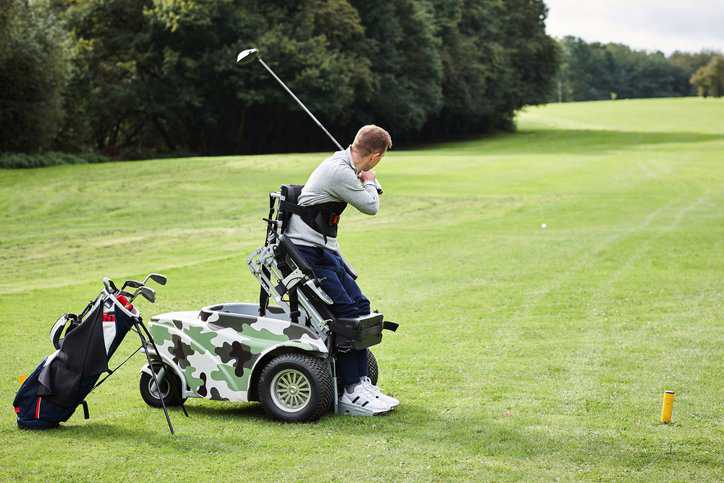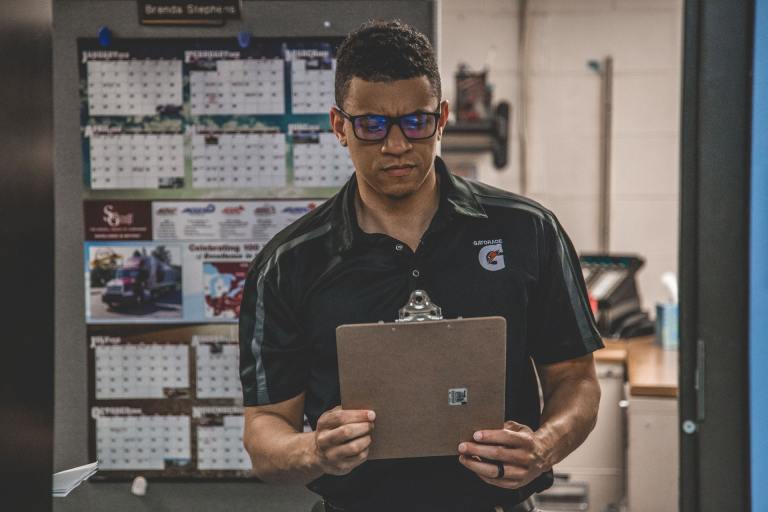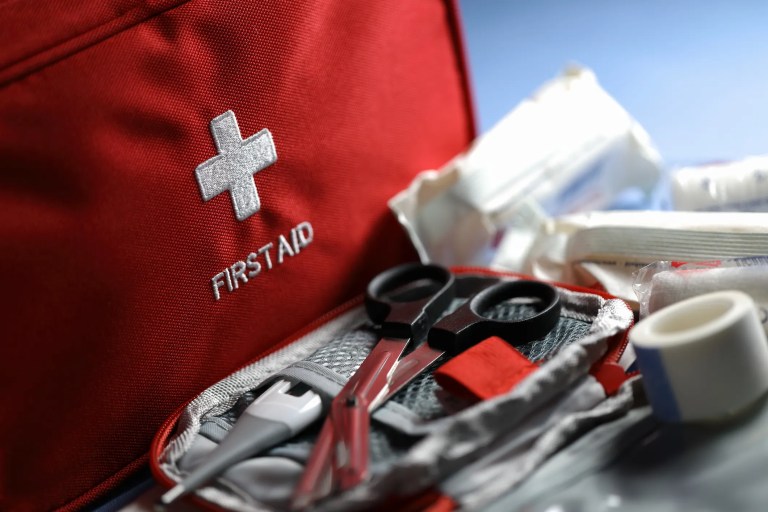ANSI/RESNA ASE-2:2012 (R2018)— Adaptive Golf Cars

Golfing empowers individuals with cognitive, physical, sensory, health, and age-related challenges. As such, golf is an important therapeutic and rehabilitative tool that can improve the quality, minds, body, and soul of individuals with impairments or disabilities, but to do so, the essential equipment must be accessible. ANSI/RESNA ASE-2:2012 (R2018)— RESNA American National Standard For Adaptive Sports Equipment – Volume 2: Adaptive Golf Cars specifies requirements and test methods for determining adaptive golf car performance.
What Is an Adaptive Golf Car?
An adaptative golf car is a single-ride golf car featuring stand-up seats with swivel capabilities as well as ergonomically designs controls, automotive suspension, strong hill-climbing capabilities. It is an electrically powered golf car that does not damage tees or greens and is designed to be operated by a golfer with or without mobility impairment. ANSI/RESNA ASE-2:2012 (R2018) specifies that an adaptive golf car has features, such as hand controls for acceleration and baking, a height adjustable swivel seat, and adaptive seating components, that allow a golfer to swing a golf club from a seated position and/or a semi-standing position.
What Is ANSI/RESNA ASE-2?
ANSI/RESNA ASE-2:2012 (R2018) covers the requirements and test methods for the testing of adaptive sports equipment, particularly for golf cars. Adaptive golf cars are designed to be used by golfers with and without a mobility impairment. The American National Standard establishes safety specifications for the design and operation of adaptive golf cars driven by electric motors with respect to speed, acceleration, stability, braking systems, operational controls, electrical systems, and general configurations.
ANSI/RESNA ASE-2:2012 (R2018) is intended to promote safety in the design, manufacture, maintenance, and operation of adaptive golf cars.
How Does the American Disabilities Act (ADA) Impact Golf?
The American with Disabilities Act (ADA) became law in 1992—guaranteeing access for people with disabilities to all facilities open to the public. In the same year, more detailed guidelines for golf courses were developed. For example, the ADA rules specify guidelines for accessible routes, teeing stations, course barriers, and temporary facilities:
- Accessible Routes—An accessible route (golf car passage) must connect accessible teeing stations with accessible parking spaces. The accessible route must be at least 48 inches wide. If handrails are provided, the accessible route should be at least 60 inches wide to allow a person who plays golf from a golf car to practice driving a golf ball from the same position and stance used by others playing the game.
- Teeing Stations—If teeing stations or practice teeing grounds are provided, at least 5 percent but not less than one of the practice teeing grounds must be accessible and provide space for a golf car to enter and exit.
- Course Barriers—Course barriers refer to curbing or other man-made barriers that often line golf car paths to reduce erosion or restrict golf cars from entering certain portions of the course. When man-made course barriers are provided that prevent golf cars from entering a fairway, openings at least 60 inches wide at intervals not exceeding 75 yards must be provided, because these dispersed openings provide golfers access to the course at reasonable intervals. The opening also enables a golfer using a golf car to play the game without extended travel distances and time requirements.
- Temporary Facilities—Access to temporary facilities (e.g., bleachers for tournaments, assembly seating areas, portable toilet facilities, concessions, and all other available amenities to provide access) on a golf course may be achieved through either an accessible route or golf car passage. Facilities hosting tournaments or competitions should provide an equal opportunity to individuals with disabilities to enjoy the services provided.
Accessible design leads to not only simpler and more efficient maintenance but also allows people with disabilities to participate in golf and enjoy its physical and social benefits.
ANSI/RESNA ASE-2:2012 (R2018)— RESNA American National Standard For Adaptive Sports Equipment – Volume 2: Adaptive Golf Cars is available on the ANSI Webstore.






